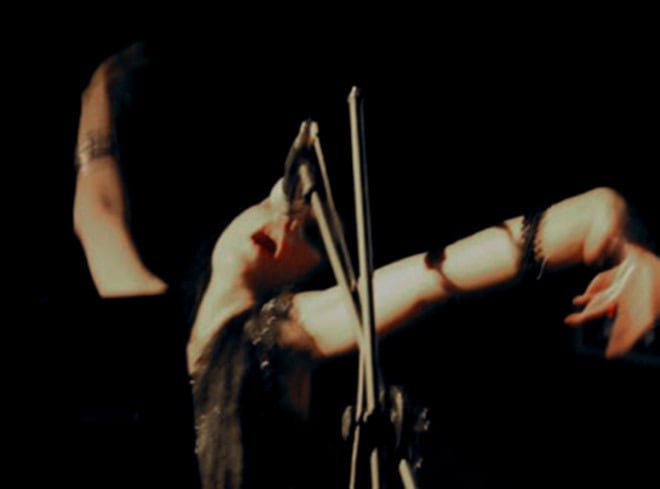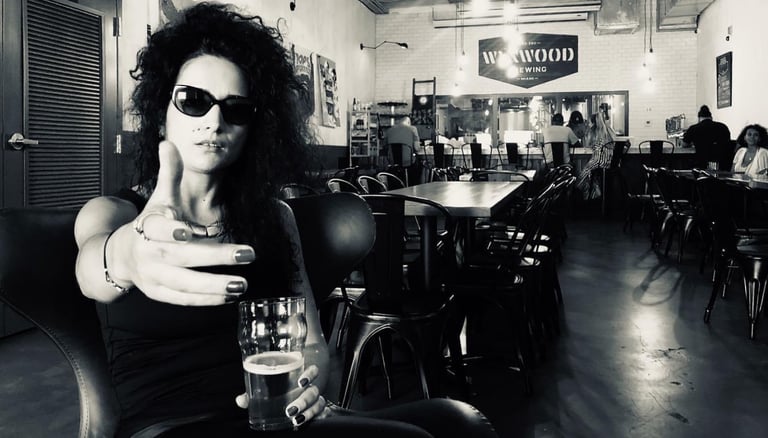
DURING THE EARLY YEARS OF 2000
During the early years of 2000, I study history and methodology of art, theories and history of cinema, aesthetics; I listen continuously to Demetrio Stratos and Area. On one side I am very interested into the music from jazz that meets rock-music until the born of fusion; on the other side, I understand that my experience has its own course: it is vocal, experimental, strictly personal and soloist.
In 2005 I record Diffrazioni Sonore and I send it to the Stratos Award Jury. Continuing university, I move to Milan where I play with some local bands (principally doing blues and standards repertoires). Then the response from the award jury acknowledges my musical goals I called "difuoriste" (according to the neologism by Demetrio Stratos which means "being outside" – from the ordinary/occasional fruition). So I continue to dedicate myself to my work with intellectual and emotional devotion.
Diffrazioni Sonore is a project developed over the years, starting from about 2000. I did not started making music in Academy or Conservatory, but confronting myself with the worldly modern culture, such as my participation at Arezzo Wave Festival demonstrates. Therefore, the work that led to Diffrazioni has been completely soloist and solitary, not conceivable otherwise. The three hours spent improvising in the recording studio are the final result of three years of passion, solitude, silence.
My first aim today is still going out as a brave voice out of the choir, out of the limbo of this Small Italy.
What they call courage is my vital force, and it is this mental and cultural distortion that disheartens me, from which I flee for creative and intellectual necessity to create. Attributes so far away from any artistic local aestheticisms, which does not see the decisive sense which towers above all my choices is the necessity. [Milan, February 25th 2006].
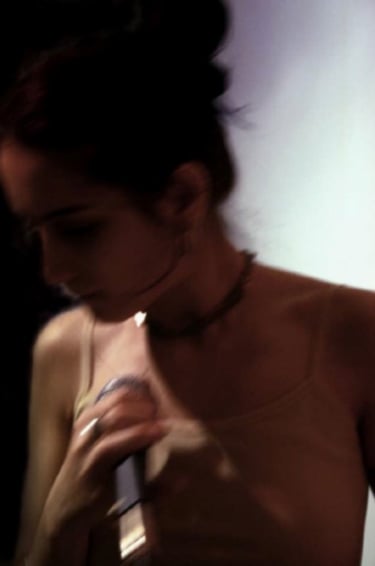

ABOUT AREZZO WAVE (Insound magazine, April 2006, p. 66)
I think music doesn’t need a definition, it is one thing with the research and the consciousness needs”. So I’ve posted into AW guest-book. Me and my work move away from this consideration, expressing an irrepressible need destined to offend the weak souls, otherwise, my vocalism wouldn’t be as it is.
During AW I experimented the way to transmit this sensation; in other circumstances I have said that due to its nature, I consider the Stratos Award the only Italian contest where I can propose my work. Arezzo is not an ordinary occasion to perform, of course: it is a well-known festival offering a stage for the new bands. AW presents a variety of styles, but to tell the truth, musicians (not the jury) are closed to the top-ten mentality.
I heard a sincere applause when, during the interview, Claudio Chianura was talking about the need of the research; It was touchy! People know it is a necessity, and they become aware only when they hear talking about this topic.
When it is tackled. This is the point.
The stagnant culture is not the people’s fault, it is the promoters’ fault which remain attached to old systems and old styles, not proposing the musicians trying to do something new.
The strength is a clear feature of Arezzo Wave Love Festival: people come from everywhere, and there is a camping, non-stop parties, cinema and cabaret, but above all there is music, of course.
In this panorama ruled by Italian metal-core and electronic pop, what I meant there?
Many people answered to this question when they were coming to the stage area, during the concert and the interview, thinking over my grade of experimentation. And I thought the contest was not totally inadequate, but the audio settings were, indeed, which can be placed in the speech of my music proposal at Arezzo, as well.
The awareness of being and being-in (my music) is a certain thing, an interfering sensation that is withering: the discovery of one’s potential force and the recognizing of the voice to say, in which the music, the research and the awareness are the only one thing. [Romina Daniele. July. 2006].
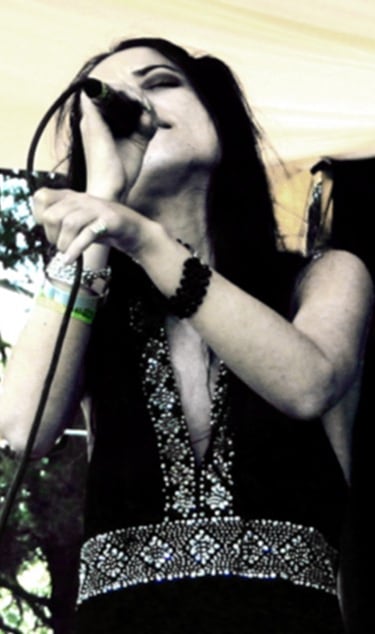

MY BLUES SOUL
The night before the meeting with the Stratos Award jury, I was at the Blues House in Milan to listen and to watch Odetta, with the same excitement in the heart. Unfortunately the audience was the same that I found when I used to sing as choriste, or when on that stage the most anonymous and mediocre band was playing.
I don’t know how many people were there with the same emotion I had in the heart. Odetta is a very important and decisive vocalist for me; she has been the object of my studies and passion and... I could listen to her a few steps from my house paying a cheap ticket, together with an occasional audience.
We’re talking about blues, the great historical and real blues; historical real big part of the music. The modern blues founds its origins in here, and people don’t know it. They are laughing, drinking beer and talking amiss, without conscience, pretending to be the ones who listen to the good music.
My experimental experience is one hundred years of empty-consciousness far away from these considerations. And I sarcastically smile while I think over it, suppressing a lump in my throat.
She noticed me at once, and she repeatedly gazed at me. I probably represented (my look) for her that sneaking nihilism that hasn’t been neutralized by any battle so far, that became more and more intense as a general cultural state, since the end of the 70’s.
The nightclub audience appreciating the blues cover bands are not prepared to understand an intense emotive experience like Odetta live performance; this is due to a musicological issue of historical-cultural reasons whom present musical scene doesn’t comply with.
The vocal force and the meanings of the vocal expression, in my experience, are linked to these considerations. The fact that the music so called “educated”, today, is really nothing else that contaminated (during a historical course in which the blues and the jazz have been critically codified), represents a musical speech which deserves being considered as not abstracting.
My work, awarded with the Demetrio Stratos award, dips its roots in everything that is true and not connected to any concept. I wouldn’t be able to study Demetrio Stratos if I didn’t feel this desire so much and I wouldn’t propose any approach to vocalism if I didn’t identify myself with which can be defined as “being-giving voice”.
Nowadays, it is difficult to define a real blues and jazz culture, contaminated with too much different concepts (not only physically but emotionally as well) from its origin and encoded in sterile signatures so far away from the human instinct and so closed to the historicism; therefore, my blues band activity appears to me as an inevitable intense emotion. [Romina Daniele. March. 2006].
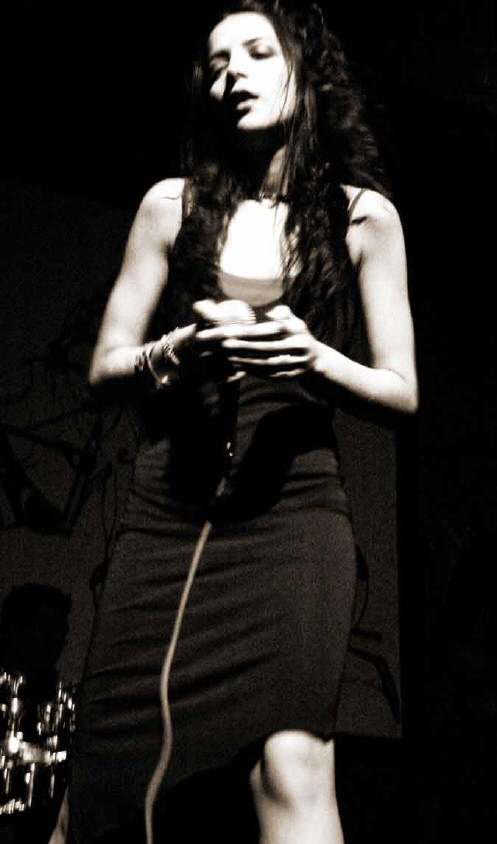

VOCAL LABORATORY CLASS TAUGHT BY ROMINA DANIELE
The class takes place in Valmadrera (Lecco) between May and July 2006, promoted by CRAMS School of Music.
Program is base on three points:
1. The materials of collective experience will be addressed to the discursive capacity of an unconditioned vocal production, based on cognitive awareness.
2. Proposal of theoretical expositions and precise practical exercises are foreseen in relation to: breathing - generation of sound - modulation of intensity, duration, frequency - palpable identification of the organs in active action during vocal production - the canonical registers through knowledge of articulation and of modulation - moods - interpretation of texts - sound, air, noise - individual and group improvisation.
3. The experience will focus on the necessary awareness of being as a voice, implying the recognition of the voice as a powerful expression of the self beyond any canonical sector or role, projecting towards stylistic indifferentiation for artistic and exploratory purposes.
The piece you are reading is mine, the laboratory is mine. A dual possession. I am writing here today something about this value: the centrality of my thought, of my experience; the laboratory in its effectiveness.
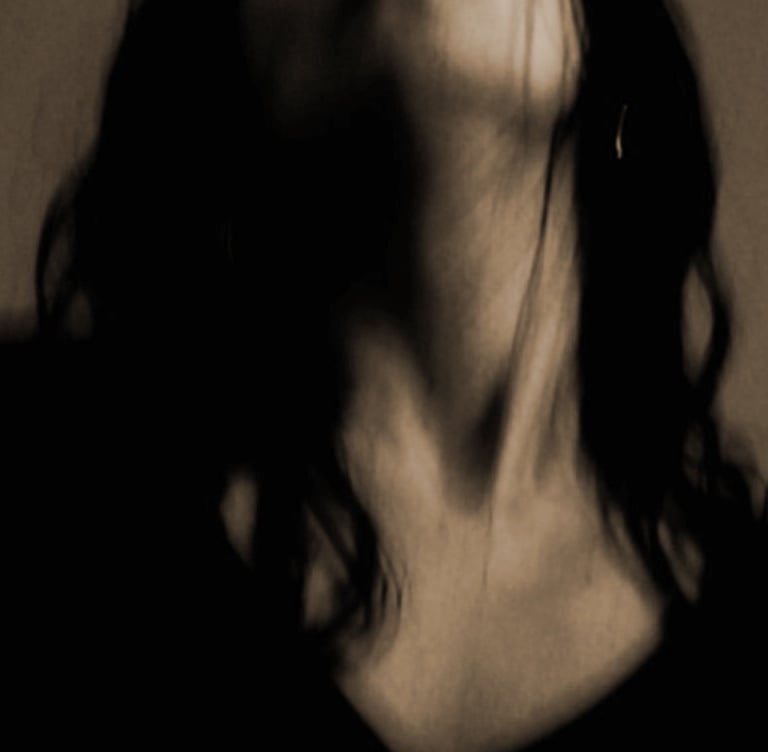

At a first glance, it is not difficult to understand that my program requires a considerable unconditional force of cognitive will as a voice-that-gives-a-voice, as a requirement for the participants. This actual thing, however, has to deal with the equally actual meanings of laboratory activities today.
Men are educated in laboratory activities from childhood. It's an institutional fact. Today we really like to wallow in modernity and open-mindedness (by definition) and mix things up so as to call them with a super modern language. Then we find ourselves entangled in a chain of synonyms: laboratory, course, teaching lessons...
I am very grateful to "Cantieri Sonori" and Crams who gave me the opportunity to delve deeper into these reflections (which I have the idea of organizing into a longer essay within this year). Because I had never thought of channeling my experience into the meanings of doctrine and indoctrination. Never. These are very subtle questions around which my thoughts revolve and through connections that are anything but obvious.
Doctrine and indoctrination. No. They don't concern me.
My way consists in having no way, I quote Hegel.
Indoctrination is what sterile containers need so you can stick a label on them.
The kind people I meet on Thursdays in Valmadrera are not "Romina Daniele's students" nor profound explorers of their own voice. They are kind people... who widened their eyes and displayed silence at my provocative words, and who had never thought about the vectorality of the Voice-Action and its conveyance as an incontestable Presence, before now.
This is therefore a real laboratory. Not a little lesson. Not a specialist research group. Rather, experimentation with the possibility of expanding the scope of the need for Voice-Action.
Consciousness.
I will soon announce: the specific contents of the work carried out in past meetings and the information about the two-day internship which I was also kindly asked to hold.
I thank you all.

